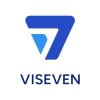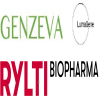Dive Brief:
- Kite Pharma, fresh off announcing two deals to broaden its reach into Japan and China, this week continued to signal steady progress in completing the regulatory application for approval of its lead CAR-T therapy by the end of the first quarter.
- Presenting at the J.P. Morgan conference in San Francisco, Kite CEO Arie Belldegrun also said his company would present data during Q1 from 92 patients treated with the therapy — now called axicabtagene ciloleucel or axi-cel — who had at least six months of follow-up.
- Markets will be watching the six-month data closely to see if the 39% complete response rate seen after three months in an interim analysis of Kite's ZUMA-1 study will persist.
Dive Insight:
While Kite's two deals with Fosun Pharma and Daiichi Sankyo got the most attention, plenty of people packed into the grand ballroom of the Westin St. Francis Wednesday to hear Belldegrun lay out progress on what could be the first CAR-T approved in the United States.
Kite initiated a rolling submission of its application for approval of axi-cel in early December and has been ramping up its commercial and manufacturing operations in preparation.
The next two months will be hugely important for Kite. Not only does the CAR-T specialist plan to complete its biologics license application, but the expected six-month data should give more answers on the durability of axi-cel's response rates.

Jeff Wiezorek, Kite's head of clinical development, reiterated the company's expectation that responses seen at three months will be highly durable. Still, the pressure is on to prove that the responses elicited by treatment with axi-cel hold up over time.
Some NHL patients who initially responded to treatment, ended up relapsing, driving down the overall response and complete response rates for axi-cel.
Safety data on another nine patients will also be included in the primary analysis data expected this quarter
In the meantime, Kite has been busy laying the groundwork to support potential commercial manufacturing and increase clinical production capacity.
The company recently filed an amendment to its investigational new drug application (IND) to allow clinical production of axi-cel at its El Segundo facility. This would transfer production of the CAR-T from Kite's clinical facility in Santa Monica, CA to the El Segundo space, likely by sometime in February, said Tim Moore, Kite's head of technical operations.
"What this does is it frees up our clinical site to make our next generation products," Moore explained in an interview. "We just filed an IND for MAGE A3/A6. We will be filing an IND this year for our BCMA [B-cell maturation antigen] and that capacity is needed for those additional products."
With rival Juno Therapeutics still recovering from clinical setbacks and Novartis reorganizing, Kite appears in the lead among CAR-T developers. The next few months are a chance for the company to solidify that advantage.















